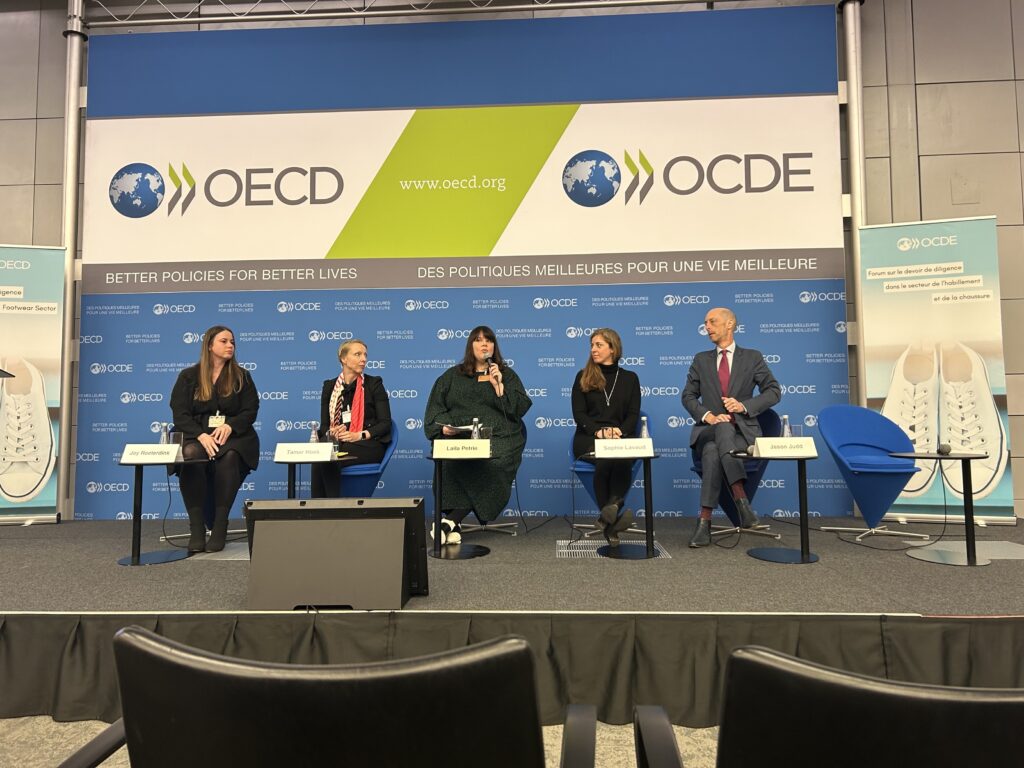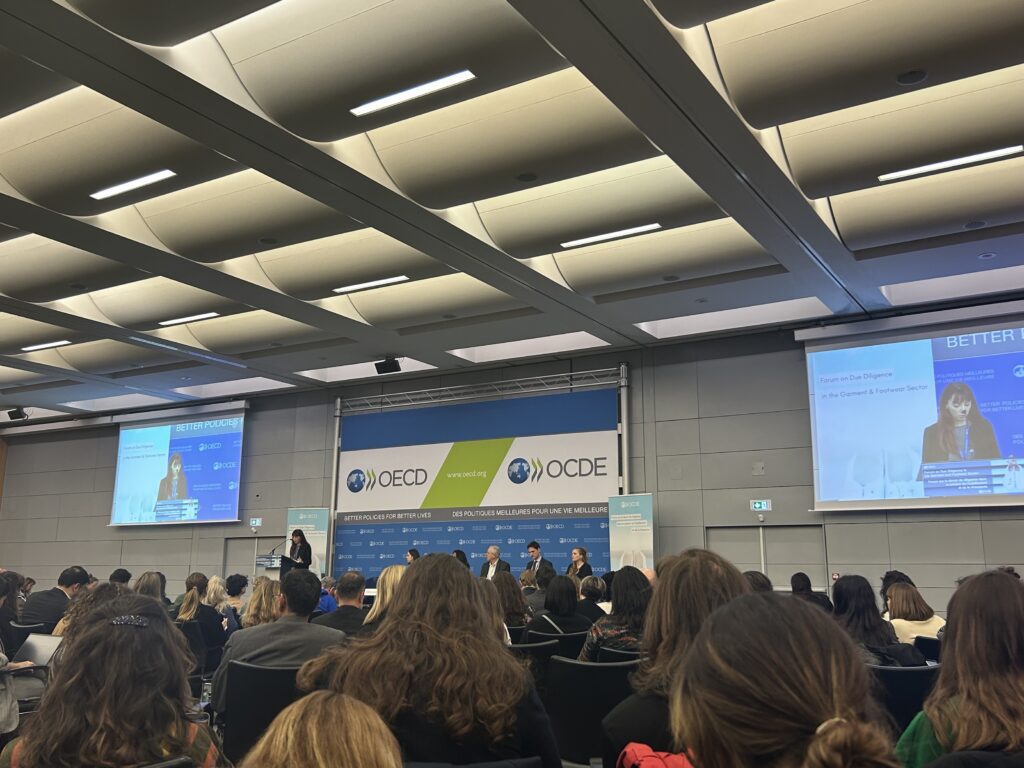Due diligence in the garment and footwear sector
27/02/2024
UKFT joined fashion industry leaders, policymakers and stakeholders at the OECD Forum on due diligence in the garment and footwear sector in Paris on 21-22 February 2024. The resounding message echoing from the event was the increasing regulation of the fashion industry to enforce due diligence practices throughout the supply chain.

Representatives from various sectors including government, business, trade unions, civil society and academia from around the world participated in the forum to discuss critical issues and risks associated with due diligence in the garment and footwear supply chains.

Key discussions revolved around the following takeaways:
- Standardisation: Participants emphasized the necessity for establishing a standardised set of tools to promote due diligence practices. Barbel Kofler, a member of the German parliament and parliamentary state secretary at the federal ministry for economic cooperation and development, stressed the importance of universally agreed-upon minimum standards that all stakeholders should adhere to. There was a consensus on the need for binding frameworks with international applicability to expedite due diligence processes.
- Moving beyond legal compliance: The forum advocated for a shift away from a mere tick-box mentality towards a more comprehensive approach to due diligence that encompasses legal as well as non-legal aspects.
- Direct support for vulnerable groups: It was recognised that vulnerable groups, including those affected by climate change and workers from low socioeconomic backgrounds, require direct representation and support. Efforts should be directed towards building resilience to climate change, fostering climate adaptation and mitigation, and promoting inclusivity within circular value chains.
- Knowledge and infrastructure development: Open sharing of information and collaborative efforts were underscored as crucial elements in building knowledge and infrastructure within the industry. These initiatives are deemed essential for accelerating progress and innovation.
- Addressing industry imbalances: Acknowledging the existing disparities within the fashion industry, participants emphasized the need to level the playing field to ensure fairness and equity across the board.
Mick Bride, Senior Vice President Corporate Responsibility, Global Affairs and Social Supply Chain at PVH Group, summed it up perfectly. He said: “Fashion is becoming a regulated industry, there are 82 laws in the books for the fashion sector. You can either bury your head in the sand and follow due diligence, or live it and breath it and get involved and go beyond.”

As the industry moves forward, the need for robust due diligence practices and regulatory compliance is clear, signalling a transformative shift towards a more responsible and sustainable fashion ecosystem.
UKFT is part of the OECD’s manufacturing network alongside other trade associations and federations from around the world. This aims to share knowledge and best practice, and advise OECD on the barriers and gaps to inform its guidance.
UKFT’s Sustainability 101 series looks at the role of standards within due diligence, regulatory frameworks and the best approach to due diligence issues. Julia Deville from OECD will feature on an upcoming Sustainability 101 webinar.
